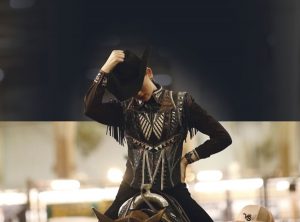Discussions With An Equine Sports Psychologist – Getting over the 2020 covid-19 Blues
Click here to read the complete article
This has been a tough year for everyone. Some exhibitors are continuing on in the face of adversity while others have had to stop showing due to event cancellations, postponements, job loss, shutdowns, and other financial and health considerations. Horse people worldwide are still struggling with the loss of time, income, and lack of memories of a 2020 show and training season and, most importunately, the loss of life that the COVID-19 virus has taken.
With this overall negative state of mind, 2020 has left a majority of riders in a funk, to say the least. The list of setbacks and reasons why we’re mentally stressing out and losing in the show ring before we even get out there is long and quite personal to each and every rider. Whether dealing with COVID-19, an injury, or another type of setback, these are just a few of the truths that could hold riders back before the new show season even begins:
• Reassessing priorities, goals, and plans so many times that it starts to feel like a waste of time.
• Sadness due to missing the social outlet that barn time, lessons, and showing offers.
• Setting unrealistic expectations for yourself and horses, trainers, show officials, judges, and health and government officials, whose job it is to determine whether an event can take place.
• Feeling guilty about the possibility of losing close communication with friends, fellow competitors, trainers, and instructors.
• Having to rush through important steps and show prep trying to make up for lost time when finally getting ready to attend a show.
• Dealing with confidence issues–like perfectionist syndrome or fearful riding–without the availability to train, take lessons, or perhaps get to know your horse better before heading to a real show again.
• Having anxiety about green horses and novice exhibitors missing their chance to take the experience a bit slower and adjusting to the pressures of showing on their own terms.
What can be done to combat these reactions and behaviors that cause feelings of sadness, isolation, disappointment, and possible depression? An equestrian sports psychologist may have insight about how riders can face the emotions they’re feeling and how to stay positive in these times of change. Dr. Janet Edgette is an equestrian sports psychologist, author, and rider who obtained a Doctor of Clinical Psychology at Hahnemann University, Philadelphia; a Master of Public Health from the University of Oklahoma; and a Bachelor of Science from Union College in Schenectady, New York. She explains that nowadays she sees more frustration than depression, and even more discouragement. “It helps, but only the littlest bit, to know that everyone is pretty much in the same miserable boat. The ones most vulnerable to this frustration are probably the riders who can’t afford to lose a show year, like a youth exhibitor in their last year.”











